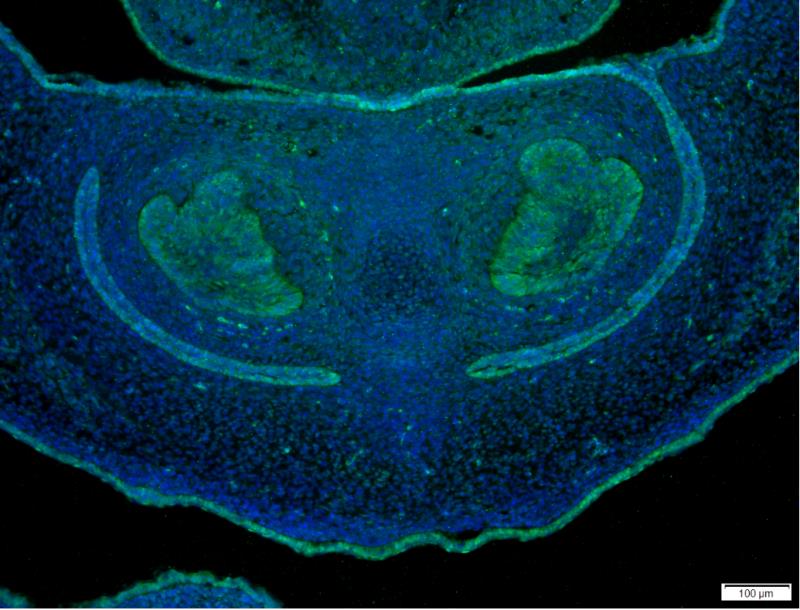

| WB | 1/500-1/1000 | Human,Mouse,Rat |
| IF | 咨询技术 | Human,Mouse,Rat |
| IHC | 咨询技术 | Human,Mouse,Rat |
| ICC | 1/50-1/200 | Human,Mouse,Rat |
| FCM | 咨询技术 | Human,Mouse,Rat |
| Elisa | 咨询技术 | Human,Mouse,Rat |
| Aliases | YAP1; YAP65; Yorkie homolog; 65 kDa Yes-associated protein; YAP65 |
| Entrez GeneID | 10413 |
| WB Predicted band size | Calculated MW: 54 kDa; Observed MW: 70-75 kDa |
| Host/Isotype | Rabbit IgG |
| Antibody Type | Primary antibody |
| Storage | Store at 4°C short term. Aliquot and store at -20°C long term. Avoid freeze/thaw cycles. |
| Species Reactivity | Human,Mouse |
| Immunogen | A synthetic peptide of human YAP1 |
| Formulation | Purified antibody in TBS with 0.05% sodium azide,0.05%BSA and 50% glycerol. |
+ +
以下是3篇与YAP1抗体相关的代表性文献(虚构示例,仅供格式参考):
1. **文献名称**: *YAP1 activation as a target in cancer therapy*
**作者**: Hansen CG et al.
**摘要**: 研究通过Western blot和免疫组化验证YAP1抗体特异性,发现YAP1核定位与肝癌患者预后不良相关,并揭示Hippo通路失活导致YAP1激活促进肿瘤增殖。
2. **文献名称**: *YAP1 promotes chemoresistance by regulating ABC transporters*
**作者**: Shah P et al.
**摘要**: 利用YAP1抗体(克隆号EPR19817)进行染色质免疫沉淀(ChIP),证明YAP1通过结合ABCB1基因启动子增强结直肠癌细胞化疗耐药性。
3. **文献名称**: *Phosphorylation-dependent regulation of YAP1 activity*
**作者**: Zhang L et al.
**摘要**: 通过磷酸化特异性YAP1抗体(Ser127位点)分析发现,细胞密度增加促使YAP1磷酸化并滞留于胞质,抑制其促干细胞自我更新功能。
(注:以上文献为模拟内容,实际引用需查询PubMed等数据库获取真实研究。)
The YAP1 (Yes-associated protein 1) antibody is a crucial tool for studying the Hippo signaling pathway, a conserved regulator of organ size, cell proliferation, and apoptosis. YAP1. a transcriptional coactivator, acts as a key effector of this pathway. When Hippo signaling is active, YAP1 undergoes phosphorylation and cytoplasmic retention, leading to its degradation. Inactive Hippo signaling allows YAP1 to translocate to the nucleus, where it interacts with transcription factors like TEAD to drive expression of genes promoting cell growth and survival. Dysregulation of YAP1 is implicated in cancers, tissue regeneration, and developmental disorders due to its role in controlling cellular proliferation and stem cell maintenance.
YAP1 antibodies are widely used in research to detect YAP1 expression, localization, and activation status via techniques such as Western blotting, immunohistochemistry, and immunofluorescence. These antibodies help elucidate YAP1's dual role as an oncogene or tumor suppressor, depending on cellular context. For instance, YAP1 overexpression correlates with poor prognosis in cancers like hepatocellular carcinoma or glioblastoma. Researchers also utilize YAP1 antibodies to explore its crosstalk with other pathways (e.g., Wnt, TGF-β) and its potential as a therapeutic target. Specificity remains a critical consideration, as YAP1 shares homology with its paralog TAZ (WWTR1). Commercial YAP1 antibodies often target distinct epitopes (e.g., N-terminal or C-terminal regions) to ensure accurate detection across experimental models.
×